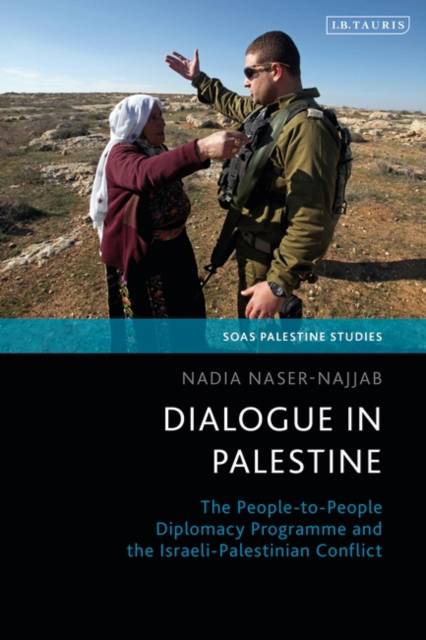
Bedankt voor het vertrouwen het afgelopen jaar! Om jou te bedanken bieden we GRATIS verzending (in België) aan op alles gedurende de hele maand januari.
- Afhalen na 1 uur in een winkel met voorraad
- In januari gratis thuislevering in België
- Ruim aanbod met 7 miljoen producten
Bedankt voor het vertrouwen het afgelopen jaar! Om jou te bedanken bieden we GRATIS verzending (in België) aan op alles gedurende de hele maand januari.
- Afhalen na 1 uur in een winkel met voorraad
- In januari gratis thuislevering in België
- Ruim aanbod met 7 miljoen producten
Zoeken
Dialogue in Palestine
The People-to-People Diplomacy Programme and the Israeli-Palestinian Conflict
Nadia Naser-Najjab
€ 228,95
+ 457 punten
Omschrijving
Since 1993, various international donors have poured money into a People-to-People (P2P) diplomacy programme in Palestine. This grassroots initiative - still funded by prominent external donors today - seeks to foster public engagement through contact and therefore remove deeply embedded barriers.
This book examines the limited nature of this 'contact' and explains why the P2P framework, which was ostensibly concerned with the promotion of peace, ultimately served to reinforce conflict and power relations. The book is based on the author's own experience of the solidarity activities during the First Intifada and her first-hand involvement as a coordinator of the P2P projects implemented during the 1990s. It provides a much-needed critical account of the internationally-sponsored peace process and develops new theoretical analyses of settler colonialism.
This book examines the limited nature of this 'contact' and explains why the P2P framework, which was ostensibly concerned with the promotion of peace, ultimately served to reinforce conflict and power relations. The book is based on the author's own experience of the solidarity activities during the First Intifada and her first-hand involvement as a coordinator of the P2P projects implemented during the 1990s. It provides a much-needed critical account of the internationally-sponsored peace process and develops new theoretical analyses of settler colonialism.
Specificaties
Betrokkenen
- Auteur(s):
- Uitgeverij:
Inhoud
- Aantal bladzijden:
- 248
- Taal:
- Engels
- Reeks:
Eigenschappen
- Productcode (EAN):
- 9781838603847
- Verschijningsdatum:
- 23/01/2020
- Uitvoering:
- Hardcover
- Formaat:
- Genaaid
- Afmetingen:
- 160 mm x 234 mm
- Gewicht:
- 476 g

Alleen bij Standaard Boekhandel
+ 457 punten op je klantenkaart van Standaard Boekhandel
Beoordelingen
We publiceren alleen reviews die voldoen aan de voorwaarden voor reviews. Bekijk onze voorwaarden voor reviews.









